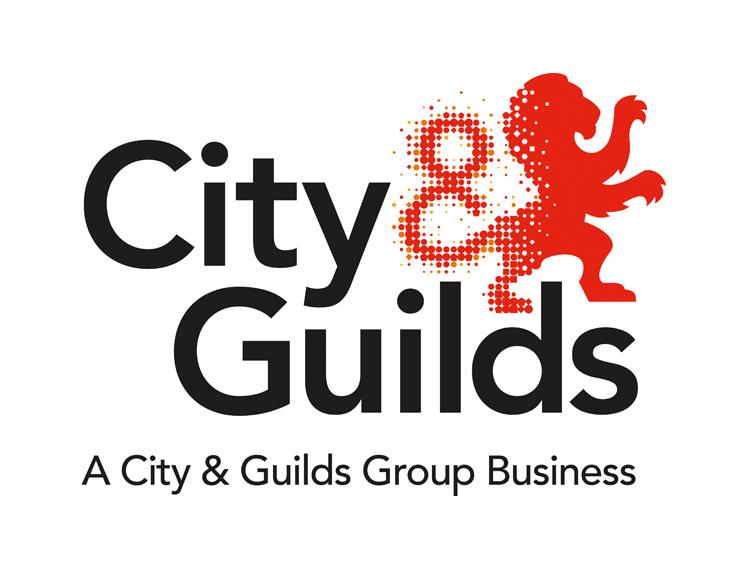Welsh Government challenged to improve apprenticeships

The Welsh Government is being challenged to consider introducing its own skills levy for Wales, to establish a lead body to govern the quality of apprenticeships and to clearly define the purpose of apprenticeships.
These are the three main calls to action by the City & Guilds and the National Training Federation for Wales (NTfW) in response to a thought-provoking, independent report, ‘Maximising the Value of Apprenticeships to Wales’, which was launched at the Senedd in Cardiff today.
The report was commissioned by City & Guilds and the National Training Federation for Wales (NTfW) with support from the City & Guilds National Advisory Committee for Wales to look at ways of further improving the successful Apprenticeships Programme in Wales.
It’s the first report of its type specifically focused on apprenticeships in Wales.
Responding to the report, City & Guilds and the NTfW call on the Welsh Government to publish a clear statement on the purpose of apprenticeships which includes clarity on the target age group and the intended level of outcomes and progression.
“By asking Welsh Government to be unequivocal on the purpose and value of apprenticeships, we believe that individuals would be able to make better informed choices,” they said. “But in creating clarity around what an apprenticeship is and what it is not, then Welsh Government needs to consider the impact on other levels of provision.”
The second call to action is to establish a lead body to govern the quality of apprenticeships at a national level, including assessing performance against quality, progression, employment outcomes and impact. This body would report regularly to the Welsh Government.
“Concentrating effort in a single body, rather than dispersed among several, will bring clarity on who sets direction, who provides accountability for the system and will be much more cost effective,” said City & Guilds and the NTfW.
“A level of independence from government is important for any lead body to ensure sustainability and stability. But continuing to work closely with Welsh Government as a key partner is equally important. Getting the leadership and governance of the lead body right and using the right measures will also be crucial to its success.”
The third call is for the Welsh Government to undertake a comprehensive review of the UK apprenticeship levy as it relates to Wales. This review will aim to meet the needs of employers and individuals in Wales, align with systems across the UK and continue to give priority to apprenticeships in Wales.
“If the UK wide levy does not bring the benefits and value to Wales, then a comprehensive review is required,” said City & Guilds and the NTfW. “Employers in Wales need to feel their investment is having a direct and positive impact on their need for skills and in turn support social mobility for individuals.
“Alignment with the other UK nations is also important to support mobility of labour and transferability of skills and will also allow large multi-site employers to have a consistent apprenticeship offer across the UK.
“A broader skills levy will ensure maximum returns for employers although we suggest a continued priority is given to apprenticeships to guarantee a constant pipeline of new talent.”
Other recommendations by City & Guilds and the NTfW include:
- Revisiting the all age policy and current policy on level 2 and level 3 apprenticeships;
- Enabling the apprenticeship system, including qualification review and development, to respond faster to labour market demands;
- Developing performance indicators to demonstrate excellence and impact in apprenticeships to inform inspection and other quality frameworks;
- Establishing the optimal number of apprenticeship frameworks for employers in Wales to meet current and future labour market demands and provide progression into priority occupations;
- Establishing criteria for selection of providers, prioritising quality of teaching, learning and assessment, performance management of subcontractors and management of funding to achieve quality results.
The report authors David Sherlock, CBE and Nicky Perry, MBE, of Beyond Standards, were asked to research and analyse the depth and breadth of the Apprenticeships Programme in Wales and how it benefits individuals and the Welsh economy.
The research, carried out between June and November 2018, comprised reviewing a raft of publications from recent years relevant to apprenticeships in Wales, together with interviews with employers, apprenticeship training providers, further education colleges, representative bodies and government officials.
Sarah John, NTfW chair, said: “We are all passionate about the role of apprenticeships in creating a successful, modern economy and a fairer society in Wales. Not only do we believe in better, we want to be able to influence and help shape a future for Wales where everyone benefits.
“Of all the changes identified by the report, speed and agility in policy formation and implementation is top of the list. Overwhelmingly, there is a sense that when change is needed, it happens too slowly.
“That presents a challenge if Wales is to respond positively and with impact to the demand for new and more skills. Some apprenticeship frameworks are outdated and will need refreshing quickly and in response to the needs of employers and the labour market.
“This report also identifies there is much to celebrate. The calls to action for the Welsh Government, which are designed to move the discussion about the quality of the Apprenticeships Programme forward, have the potential for immediate impact.”
Kirstie Donnelly, Managing Director City & Guilds, DigitalMe and ILM said: “Apprenticeships are essential to unlocking the talent potential, enabling social mobility and driving economic growth in Wales. Now, with Brexit uncertainty and rising skills gaps and shortages, is the time for the Welsh Government to take stock of its apprenticeship provisions and take decisive action.
“This report highlights the importance of having an apprenticeship system that enables employers to fully embed them into their businesses. The principles adopted by the Welsh Government have been welcomed, but there are changes that people want to see.
“Apprenticeships lead to better jobs, career progression, improved productivity and a reduction in the impact of skills shortages. We believe our recommendations can address the issues uncovered by the Beyond Standards report and if implemented will set Wales on the path to success.”
Report authors David Sherlock and Nicky Perry said: “We’re grateful to the many employers, apprenticeship providers and officials in Wales who gave us their views. They told us that Apprenticeships in Wales are thriving and have avoided many of the mistakes made elsewhere. But they also told us that now is the moment for bold decisions which could make Wales the best place in the UK to recruit highly-skilled working people.
“We believe in that optimistic vision and our report suggests some first steps to make it a reality.”
About The NTfW: A membership organisation of more than 100 quality work-based learning providers with links to 35,000 employers across Wales. Members range from small specialist training providers to national and international companies, as well as local authorities, further education institutions and third sector organisations.
About City & Guilds: Entering its 140th year, was created in response to the skilled trades needing to ensure they had a supply of young people willing to learn on the job. This model represents the beginnings of today’s apprenticeships.
Founded in 1878, The City and Guilds of London Institute was founded by the Corporation of the City of London and 16 livery companies (the Guilds), to protect and promote the standard of technical education.
Our goal is to ensure that, whoever you are, you have the right skills to thrive both now and in the future.












Responses